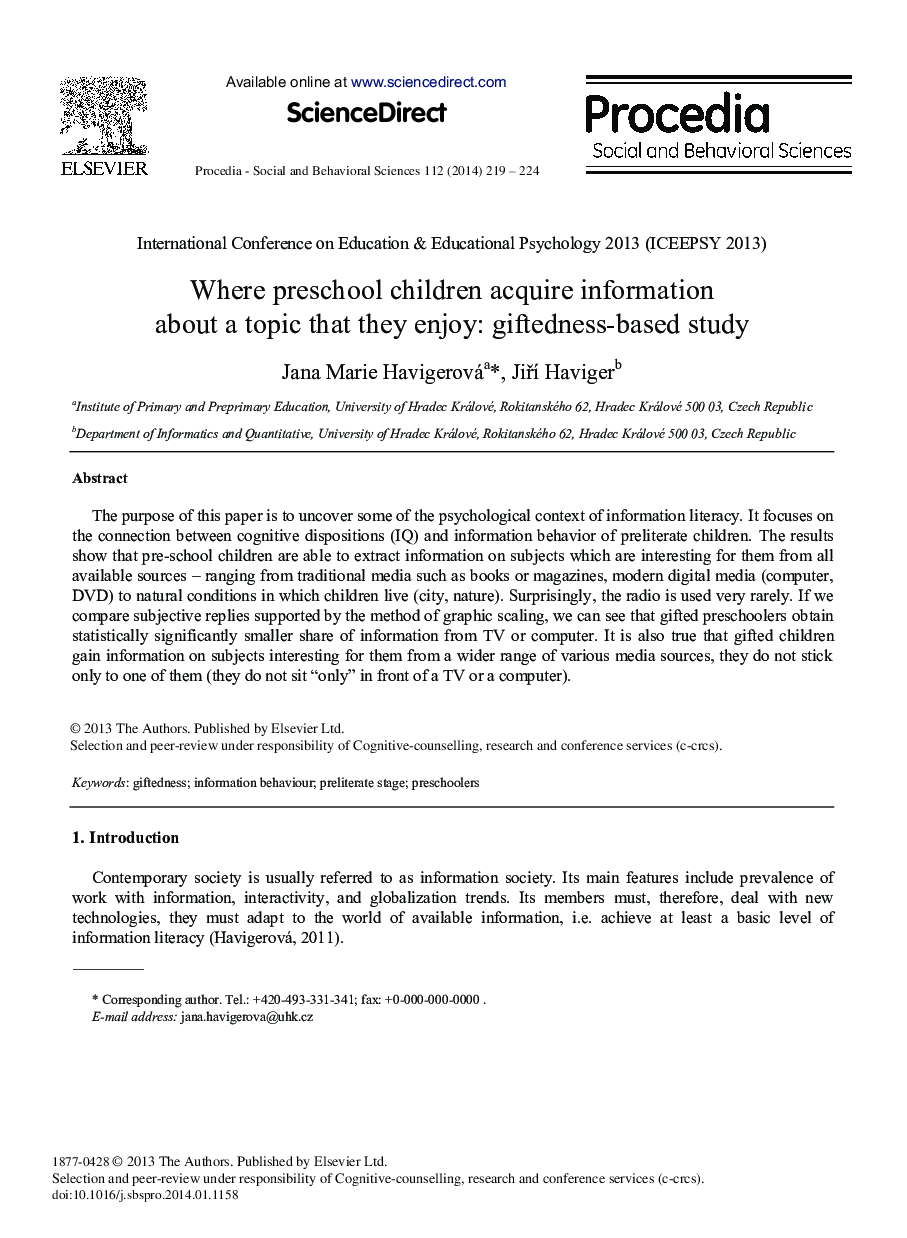| Article ID | Journal | Published Year | Pages | File Type |
|---|---|---|---|---|
| 1115426 | Procedia - Social and Behavioral Sciences | 2014 | 6 Pages |
The purpose of this paper is to uncover some of the psychological context of information literacy. It focuses on the connection between cognitive dispositions (IQ) and information behavior of preliterate children. The results show that pre-school children are able to extract information on subjects which are interesting for them from all available sources – ranging from traditional media such as books or magazines, modern digital media (computer, DVD) to natural conditions in which children live (city, nature). Surprisingly, the radio is used very rarely. If we compare subjective replies supported by the method of graphic scaling, we can see that gifted preschoolers obtain statistically significantly smaller share of information from TV or computer. It is also true that gifted children gain information on subjects interesting for them from a wider range of various media sources, they do not stick only to one of them (they do not sit “only” in front of a TV or a computer).
